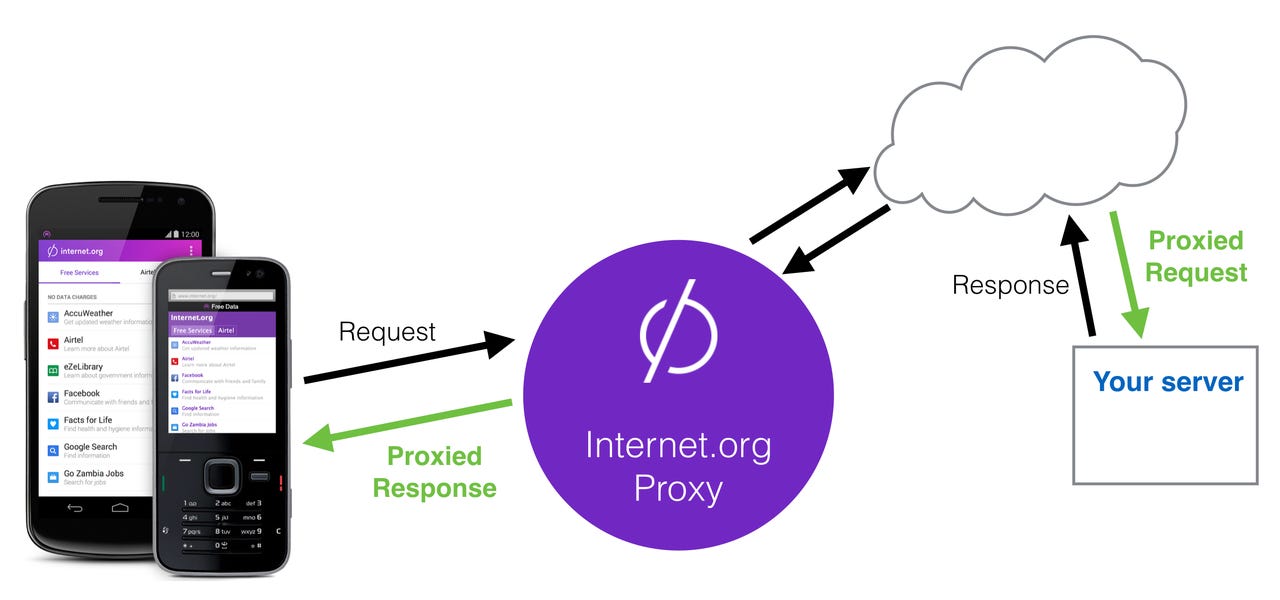Facebook wants US to have free internet access -- but there's a catch


With Free Basics, all traffic is routed through the Internet.org proxy so that operators can identify and zero-rate a service.
Facebook is eyeing a US launch of its Free Basics mobile app, which would offer smartphone owners free internet access, but only to a subset of the web.
The social network has been in talks with the US government and a number of smaller wireless carriers for months, reports The Washington Post.
Free Basics, run by Facebook's internet.org group, is one tool it's using to connect the next billion people to the internet.
It has now rolled out the mobile app to 53 mostly emerging markets in the Middle East, Asia Pacific and Latin America in partnership with local carriers. Access to some websites, including news, health information, jobs sites, and Facebook, doesn't count against the user's mobile data allowance.
However, Facebook was forced to shut down the service in India after regulators banned operators from charging customers different prices for data, including schemes where the offer was free. Facebook also canceled the service in Egypt, reportedly because it refused to cooperate with the government's surveillance orders.
Free Basics also sparked loud protests by young Indians who argued the internet should be available in its entirety, not just sites in the Free Basics program. Protesters said Free Basics violated the principle of net neutrality.
According to The Washington Post, Facebook's efforts in Washington so far have focused on ensuring a US launch avoids the pitfalls of its experience in India.
The company has also only been in talks with small and rural wireless carriers but not major brands such as T-Mobile or AT&T.
Similar to Facebook's Free Basics targeted at emerging markets, the US version of the app would be aimed at low-income and rural Americans who can't afford internet access at home or on smartphones.
Plenty of Americans could benefit from such a service. A 2015 Pew Research study found that 15 percent of adults had limited options for going online beyond their smartphone.
It also found 13 percent of adults had a smartphone but no broadband at home, up from eight percent in 2013. Of those who don't have broadband, 34 percent said broadband was irrelevant, while 19 percent cited price reasons.
As for the legality of zero-rating in the US, the Federal Communications Commission hasn't made any decision on the practice, although it has met with Comcast, T-Mobile, and Verizon to study it.
MORE ON FACEBOOK AND INTERNET ACCESS
- Facebook rolls out opt-in encryption for 'secret' Messenger chats
- Google's Project Loon: Now AI can steer its 4G-beaming balloons to right part of sky
- Photos: Zuckerberg offers glimpse inside Facebook's cavernous Arctic datacenter
- Mark Zuckerberg teases Oculus prototype for wireless VR
- Facebook outlines social future for Oculus VR
- Shopify now lets merchants sell through Facebook Messenger
- Facebook intros Marketplace for hyperlocal buying and selling
- TechRepublic: Photos: A look inside Google's, Microsoft's and Facebook's datacenters
- CNET: Facebook shows how it's gonna make virtual reality social